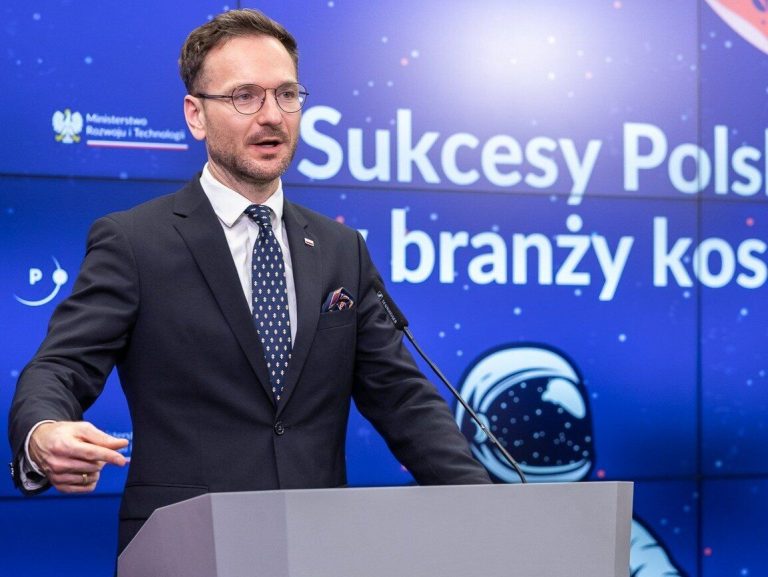Public billions for science. Researchers can apply for research funding here

The National Science Center and the National Center for Research and Development are the best-known public institutions involved in financing research and commercializing its results. However, there are more entities that support scientists in obtaining funds. The process of obtaining grants is lengthy and requires the submission of extensive documentation, but the experience of hundreds of research teams that have obtained money in this way proves that it is achievable.
Financing science requires millions of outlays. This cost includes salaries for scientists and specialists supporting them, equipment, and the opportunity to conduct research abroad. It takes months, sometimes years, from idea to implementation, and you have to reckon with the fact that in the course of research some proposals will turn out to be wrong, so the research team will have to start work from scratch. Academic units rarely have the means to finance multiple research conducted simultaneously by different institutes.
Fortunately, private companies and foundations are involved in financing scientific research, and public institutions also offer a wide range of possibilities in this regard. The funds are most often distributed in the course of competitions, so teams from all over the country can apply for them.
The National Science Center and the National Center for Research and Development play the largest role in financing scientific research.
National Science Centre
The NCN is an independent institution that distributes grants for research: it finances research carried out in the form of research projects, including financing the purchase or production of research equipment necessary for the implementation of those projects that are not co-financed from foreign sources. It also finances doctoral scholarships and post-doctoral internships. The statute of the Center stipulates that no less than 20% of funds will be allocated to support the development of people starting their careers. resources at its disposal.
Also experienced scientists who conduct pioneering scientific research, including interdisciplinary research, “going beyond the current state of knowledge, which may result in scientific discoveries”, may apply for support from the National Science Centre.
The NCN supports basic research, i.e. empirical or theoretical work undertaken primarily to gain new knowledge about the foundations of phenomena and observable facts, without direct commercial application. Over the 11 years of its existence, the center has awarded over 26,000 grants to scientists from all over Poland.
“In a hierarchical system at universities, our agency allows you to create competition between young and more experienced scientists” – noted in an interview with PAP NCN Director Prof. Zbigniew Blocki.
He added that thanks to the activities of the Centre, it was possible to prevent brain drain, i.e. the outflow of the best scientists to business or abroad.
The annual budget of the Center in 2022 and 2023 amounted to approx. PLN 1.5 billion.
National Centre for Research and Development
The National Center for Research and Development is an executive agency of the Minister of Science and Higher Education. It was established in the summer of 2007 as a unit carrying out tasks in the field of science, science and technology and innovation policy of the state. The Center paved the way for other institutions dealing with financing, but also had to develop the necessary procedures, because several years ago there were no other similar institutions.
“Supporting Polish scientific units and enterprises in developing their ability to create and use solutions based on scientific research results in order to give a development impulse to the economy and for the benefit of society” – this is the goal of NCRD, which can be read on the agency’s website. This is done through strategic, national and international programmes. It also runs projects in the field of defense and security. Projects that have the greatest chance of actually increasing national security can count on financing.
NCBR creates a space for cooperation between science and business, as the condition for participation in some competitions is the establishment of a consortium of a research unit with an entrepreneur. Some grants can be applied for only as an entrepreneur, for others – only as a university. This diversity means that very different entities can become beneficiaries.
In February this year, the National Center for Research and Development announced the first competition under the European Funds for Modern Economy Program – SMART Path. It is the successor to the Fast Track known to entrepreneurs, the largest innovation support program for Polish companies so far, but in a new, refreshed formula and with a wider area of funding opportunities. Its budget is as much as PLN 667 million.
– Thanks to the European Funds, we help our domestic companies to gain a competitive advantage on the domestic market, as well as often abroad. The successful implementation of the project facilitates the development of companies based on the developed solution, it also gives the opportunity to diversify production, making the company independent of changes in the business environment – said Dr. Paweł Kuch, acting director of the National Center for Research and Development, in February 2023.
Norwegian Funds for the development of Polish science
The above-mentioned institutions (NCN and NCBR) are also operators of programs financed from international sources. The most important are the EEA (European Economic Area) and Norway Grants. They are aimed at reducing economic and social disparities within the EEA and at strengthening bilateral relations between the donor states and the beneficiary state. In return for the financial assistance provided, the donor states enjoy access to the EU’s internal market, even though they are not members of it.
The Research Program aims to improve the results of Polish scientific research, both basic and applied as tools for the development of a knowledge-based society and economy. It is implemented under 2 components: support for basic research (40% of the program allocation), managed by the National Science Center (NCN) and support for applied research (60% of the program allocation), managed by the National Center for Research and Development (NCBR) ). Information about currently implemented projects can be found on the websites of these institutions.
Local government programs
Researchers who want to obtain funding for their research should also contact the provincial and marshal offices competent for the seat of the scientific unit. An example is the Metropolitan Fund for Science Support, under which there are several programs addressed to scientists from the Upper Silesian and Zagłębie Metropolis. One of them is the “World-class scientists” program, which finances the invitation of scientists representing the world’s leading universities, as well as winners of significant awards on a global scale.
The second area includes “support for innovative teaching methods”, in which programs focused on active inclusion of partners receive particular points. It is carried out in cooperation with the socio-economic environment.
In 2021, the Kujawsko-Pomorskie Centrum Naukowo-Technologii im. prof. Jana Czochralski sp. z oo, which is a company of the Self-Government of the Kuyavian-Pomeranian Voivodeship. The center commemorates one of the most outstanding, though forgotten, Polish scientist Jan Czochralski, who was born near Bydgoszcz.
Its mission is to carry out tasks consisting in supporting the development of science and cooperation between the sphere of science and economy, supporting technological progress and innovation, by promoting the Kujawsko-Pomorskie Voivodeship.
Commissioned by the provincial authorities, the Center activates and supports innovation, as well as the commercialization of scientific research results in the Kuyavian-Pomeranian region, supports the development of cooperation between entrepreneurs and universities, carries out research and development and implementation works. It also supports the transfer of innovation from universities and research and development units to enterprises and creates conditions for the commercialization of scientific research results.
In turn, the authorities of the Podlaskie Voivodship, in cooperation with the Technotalenty Foundation, initiated the “Bridges of the Future” program addressed to business entities, scientific institutions and all people interested in cooperation between science and business. – The scientific and business community think in different criteria and have different goals. This project serves the purpose of working at the grassroots to show new cooperation opportunities – explained Tomasz Stypułkowski, vice-president of the Technotalenty Foundation, in the official communication promoting cooperation.
This is not the first joint project of the voivodeship authorities with the foundation. Earlier, the Technotalents competition was held, in which students, pupils and graduates presented their technological projects, and Round T – an initiative enabling entrepreneurs, startups, scientists, students and other creators to meet investors from all over the country.
State Science Policy
At this point, one can also mention the State Science Policy (PNP), a strategic document that indicates the priorities for the functioning of the higher education and science system. It also defines the most important development challenges for the Polish economy and society, which should be addressed by scientific research conducted at the highest level and the education of high-class specialists at universities and doctoral schools.
The aim of PNP is to create conditions for conducting research and development work and to facilitate access to high-quality education for future generations.
The State Science Policy is the basis for the implementation of strategic and development programs of the state. It is to promote the role of science and higher education, which in turn is to contribute to raising their prestige and increasing public trust in the results of scientific research.






